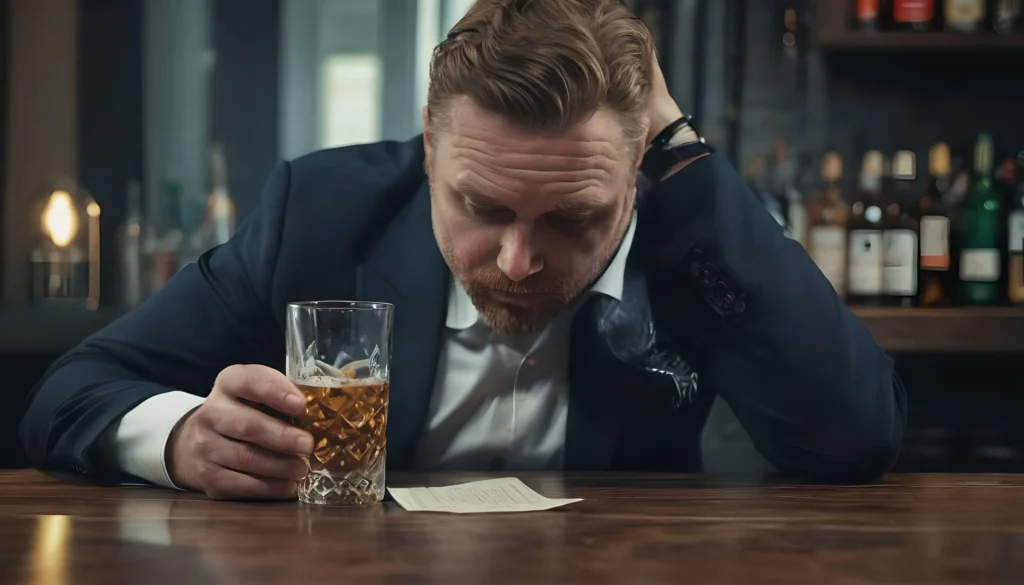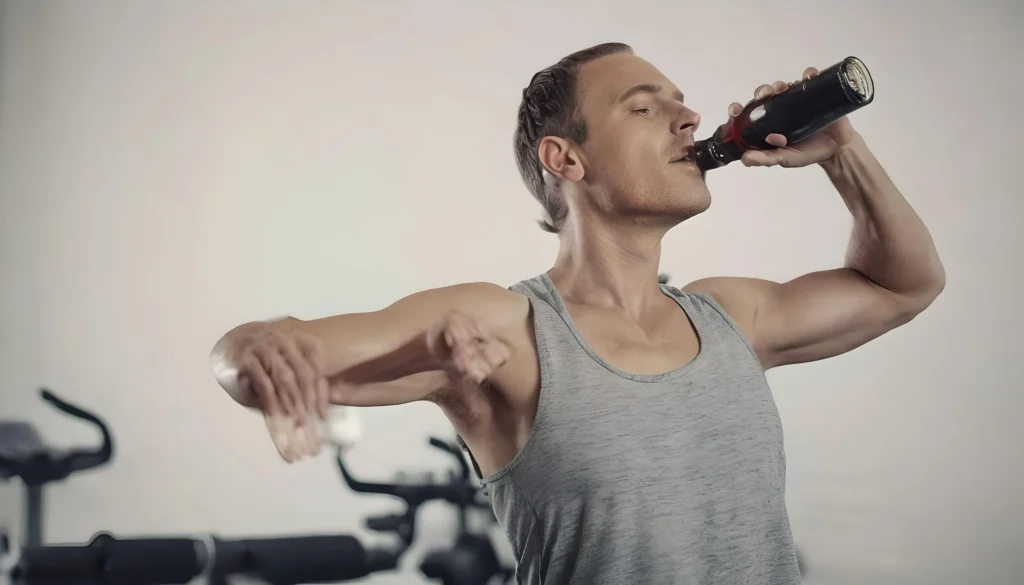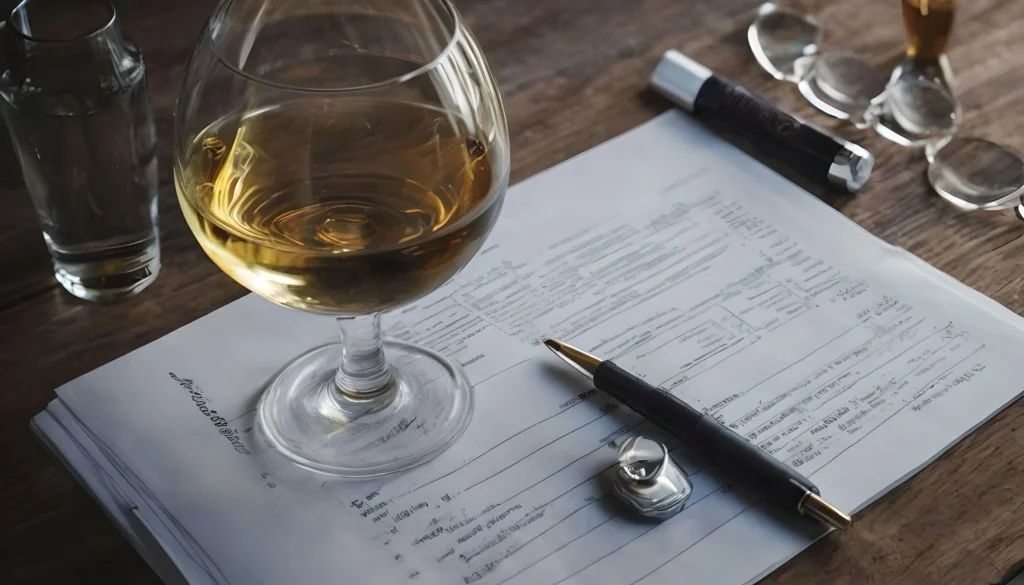Table of Contents
Introduction
How Alcohol Affects Weight Loss: A Simple Guide 2024 On the off chance that you’re on a weight loss venture, you might have experienced the common issue of navigating the impact of alcohol consumption. This far-reaching guide investigates the huge influence of alcohol on your endeavors to shed those additional pounds. From understanding the secret calorie content in alcoholic beverages to the manners in which alcohol can upset your digestion and fat-burning cycles, this article gives fundamental insights to assist you with achieving your weight loss objectives while managing the difficulties presented by alcohol.
Alcohol is often a wellspring of “void” calories, meaning it gives energy without nutritional worth. The calorie content in alcoholic drinks can add up rapidly, possibly sabotaging your weight loss progress. Furthermore, alcohol can interfere with your body’s normal metabolic functions, making it harder to consume fat and maintain a sound weight.
In this aide, we’ll dive into the perplexing relationship between alcohol and weight loss, covering points, for example, the impact of alcohol on weight gain and fat storage, the disruption of your muscle-to-fat ratio’s burning capacities, and the influence of alcohol on supplement absorption and hydration. By understanding these key variables, you’ll be engaged to settle on informed choices and foster systems to minimize the unfavorable impacts of alcohol on your weight loss venture.
Key Takeaways
- Alcohol consumption can essentially impact weight loss endeavors because of its secret calorie content and troublesome consequences for digestion.
- Alcoholic beverages, like lager, wine, and alcohol, contain varying measures of calories that can contribute to weight gain on the off chance that not represented in your general calorie intake.
- Alcohol can weaken your body’s capacity to consume fat actually, leading to increased fat storage and weight gain.
- Alcohol’s consequences for insulin opposition and supplement absorption can further hinder your weight loss progress.
- Incorporating moderation and choosing lower-calorie alcoholic options can assist with mitigating the adverse consequence of alcohol on your weight loss objectives.
The Impact of Alcohol on Weight Loss

With regards to weight loss, the impact of alcohol consumption couldn’t possibly be more significant. Many individuals know nothing about the huge calorie content secret in alcoholic beverages, which can disrupt their weight loss endeavors. From the unhealthy content of brew to the surprising calories included in wine and alcohol, understanding the role of alcohol in weight gain and fat storage is essential for effective weight executives.
Understanding the Calorie Content of Alcoholic Beverages
Alcohol, whether it’s brew, wine, or alcohol, is often disregarded as a critical wellspring of calories. A single glass of lager can contain as many as 150 calories, while a 5-ounce pour of wine can pack around 120 calories. Indeed, even alcohol, which is commonly remembered to be a lower-calorie option, can contain 100 calories or more for every serving, depending on the proof and blender utilized. These secret calories can rapidly add up, undermining the headway made through diet and exercise.
The Role of Alcohol in Weight Gain and Fat Storage
Beyond the calorie content of alcoholic drinks, alcohol can likewise contribute to weight gain and fat storage in other ways. Alcohol is used uniquely in contrast to other macronutrients, with the body prioritizing the processing of alcohol over the burning of fat. This can prompt a log jam in the muscle versus fat’s burning skills, resulting in the storage of an overabundance of calories as fat. Additionally, alcohol can animate craving and disable decision-making, leading to unfortunate dietary decisions and overeating, further exacerbating weight gain.
Understanding the impact of alcohol on weight loss is essential for individuals seeking to accomplish their well-being and wellness objectives. By being mindful of the calorie content in alcoholic beverages and the physiological impacts of alcohol on the body, individuals can settle on additional informed decisions and execute compelling methodologies to alleviate the adverse consequence of alcohol on their weight loss venture.
Alcohol and Metabolism Of Weight Loss
Understanding the intricate relationship between alcohol and metabolism is crucial for weight loss. Alcohol metabolism plays a significant job in how the body processes and utilizes energy, ultimately affecting fat-burning and weight management.
How Alcohol Disrupts Fat Burning
Alcohol consumption can have a disruptive impact on fat burning, a process known as lipolysis. The presence of alcohol in the body triggers the liver to focus on the metabolization of alcohol over other nutrients, including fat. This diversion of the body’s resources leads to a slowdown in the fat-burning process, making it more challenging to lose weight.
Furthermore, alcohol can also impair the body’s ability to oxidize, or break down, fat for energy. This impairment is because of the way alcohol interferes with the body’s cellular machinery responsible for fat metabolism. As a result, the body becomes less proficient at using stored fat as a fuel source, contributing to weight gain and impeding weight loss efforts.
The Effects of Alcohol on Insulin Resistance
Alcohol consumption can also have a significant impact on insulin resistance, a key factor in weight management. Insulin is a hormone that plays a crucial job in regulating glucose levels and facilitating the storage of excess energy as fat.
Chronic alcohol use has been connected to increased insulin resistance, and that means the body becomes less responsive to insulin’s effects. This can lead to higher glucose levels, contributing to a cascade of metabolic issues, including weight gain and trouble losing weight. Addressing insulin resistance is essential for individuals seeking to enhance their weight loss venture while incorporating alcohol into their lifestyle.
Drinking and Exercise For Weight Loss

The relationship between alcohol consumption and exercise is often disregarded, yet it can have significant implications for individuals striving to achieve their fitness and weight loss goals. Engaging in physical activity after consuming alcohol can pose serious risks, from increased injury potential to diminished exercise performance and impaired post-exercise recuperation.
The Dangers of Exercising After Consuming Alcohol
Alcohol is a central nervous system depressant, which means it slows down the body’s physiological processes, including reaction time, coordination, and balance. At the point when you exercise after drinking, these impairments can increase the risk of accidents, injuries, and even dangerous incidents. Alcohol exercise can also lead to dehydration, which can further compromise exercise performance and frustrate the body’s ability to successfully recuperate.
Besides, the presence of alcohol in the body can impede the body’s ability to use energy and nutrients during exercise effectively. This can result in decreased endurance, diminished muscle strength, and an overall decrease in fitness levels. The recuperation process after exercising affected by alcohol may also be disrupted, leading to prolonged muscle soreness, fatigue, and delayed adaptation to the training stimulus.
Ultimately, the risks associated with alcohol exercise far offset any potential benefits. It is crucial for individuals focused on working on their health, fitness, and weight loss to abstain from alcohol consumption before engaging in any physical activity to ensure optimal performance, safety, and recuperation.
Alcohol and Nutrition For Weight Loss
While the impact of alcohol on weight loss is often discussed in terms of its calorie content and disruption to metabolism, it’s crucial to also understand the ways wherein alcohol can impede the body’s ability to absorb and use essential nutrients appropriately. This nutritional factor plays a significant job in the broader image of how alcohol affects weight loss.
The Impact of Alcohol on Nutrient Absorption
Alcohol consumption can upset the body’s capacity to absorb important vitamins, minerals, and other nutrients that are essential for overall health and weight management. For example, alcohol can impair the absorption of nutrients like vitamin A, vitamin B12, folate, and zinc, all of which play crucial roles in various metabolic processes and overall physical processes.
At the point when the body is unable to absorb these vital nutrients, it can lead to nutrient deficiencies that can further sabotage weight loss efforts. This is particularly problematic for individuals who are already struggling to lose weight and may depend on a balanced, nutrient-dense eating routine to support their goals.
Alcohol and Dehydration: A Weight Loss Obstacle
In addition to its impact on nutrient absorption, alcohol consumption is also a significant contributor to dehydration. Alcohol is a diuretic, meaning it increases the body’s production of pee, leading to the loss of essential fluids and electrolytes.
Dehydration can have several negative effects on weight loss, including slowing down the metabolism, increasing water retention, and leading to cravings for unhealthy, sugary foods. This combination of factors can make it significantly more challenging for individuals to achieve their weight loss goals, particularly if they are not proactively addressing the dehydrating effects of alcohol.
Strategies for Minimizing Alcohol’s Effects on Weight Loss

Navigating the balance between alcohol consumption and weight loss can be challenging, yet with the right strategies, you can limit the negative impact of alcohol on your weight loss venture. Two key approaches to consider are moderation and choosing lower-calorie alcoholic beverages.
Moderation is Key
The most fundamental strategy for mitigating the effects of alcohol on weight loss is to practice moderation. Excessive alcohol consumption can significantly subvert your weight loss efforts, leading to increased calorie intake, disrupted metabolism, and unfortunate decision-making. By restricting your alcohol intake and being aware of your consumption, you can assist with maintaining a healthy balance and support your overall weight loss goals.
Choosing Lower-Calorie Alcoholic Beverages
Not all alcoholic beverages are created equal in their impact on weight loss. Some low-calorie alcohol options, such as certain types of brew, wine, and alcohol, can be incorporated into a weight loss plan with less detrimental effects. By selecting these lower-calorie alternatives, you can partake in the social and relaxing aspects of alcohol while minimizing the caloric weight and its obstruction with your weight loss efforts.
| Alcoholic Beverage | Calorie Content (per 12 oz serving) |
| Light Beer | 110-150 calories |
| Dry White Wine | 120-130 calories |
| Distilled Spirits (e.g., vodka, gin, whiskey) | 96-110 calories |
By incorporating these procedures into your weight loss plan, you can explore the difficulties presented by alcohol and augment your possibilities of achieving your ideal outcomes.
The Psychological Impact of Alcohol on Weight Loss
As we dive into the complicated relationship between alcohol and weight loss, it’s critical to address the often disregarded psychological parts of this dynamic. The influence of alcohol stretches out beyond the physiological domain, impacting our emotional prosperity and decision-making processes in manners that can profoundly influence our weight loss endeavors.
Alcohol and Emotional Eating
Alcohol consumption has been firmly linked to emotional eating, a phenomenon where individuals go to food, often unhealthy, and supplement poor options, as a coping system for pessimistic emotions. At the point when affected by alcohol, individuals might find it more challenging to oppose the temptation of comforting, indulgent food varieties, leading to an endless loop of undesirable eating and potential weight gain. Understanding this intricate connection between alcohol brain science and emotional eating is vital for individuals striving to accomplish their weight loss mindset.
The Role of Alcohol in Poor Decision-Making

Beyond the emotional domain, alcohol can likewise hinder our decision-making capacities, making it more challenging to stick to a sound, calorie-conscious eating regimen. Affected by alcohol, individuals might be more inclined to go with imprudent food decisions, forgoing their weight loss objectives for guaranteed gratification. This absence of poise and decision-making can wreck even the most benevolent weight loss plans, underscoring the significance of mindful alcohol consumption as a feature of a thorough weight loss mindset.
| Psychological Impact of Alcohol | Implications for Weight Loss |
| Emotional Eating | Increased likelihood of turning to high-calorie, comforting foods as a coping mechanism, leading to potential weight gain |
| Impaired Decision-Making | Reduced self-control and impulse control, leading to poor dietary choices that undermine weight loss efforts |
Alcohol and Weight Loss Plans
Incorporating alcohol into a weight reduction plan can be a delicate balance, yet it is possible with the right strategies. The key is to approach alcohol consumption with moderation and mindfulness, ensuring it does not derail your healthy diet and fitness goals.
Incorporating Alcohol into a Healthy Diet
About alcohol weight reduction plans, the most important factor is maintaining a healthy diet. This means monitoring the calorie content in alcoholic beverages and adjusting your overall caloric intake accordingly. By making smart choices, such as deciding on lower-calorie options like wine or light lager, you can partake in the occasional beverage without significantly impacting your weight reduction progress.
It’s also crucial to be aware of the planning of your alcohol consumption. Experts suggest avoiding drinking previously or during exercise, as it can impair your performance and recuperation. Instead, attempt to incorporate your alcoholic beverages into your post-exercise or night schedule, allowing your body to appropriately rehydrate and replenish essential nutrients.
Keep in mind, that alcohol moderation is vital. Stick to the suggested guidelines of something like one beverage each day for ladies and two for men to limit the negative effects on your weight reduction venture. By striking the right balance, you can keep on partaking in the social and relaxation benefits of alcohol while staying on track with your healthy diet and weight reduction goals.
Success Stories: Overcoming Alcohol’s Challenges

As we navigate the intricate relationship between alcohol and weight reduction, inspiring to hear that individuals have successfully overcome the obstacles posed by alcohol consumption. These alcohol weight reduction success stories offer valuable insights and strategies that can direct others on their weight reduction venture while navigating the challenges of lifestyle changes.
Take the case of Sarah, a 35-year-old marketing leader who had struggled with her weight for quite a long time. “I was a social consumer, and it was only after I seriously investigated my habits that I realized how much alcohol was sabotaging my weight reduction efforts,” she explains. After making the conscious decision to restrict her alcohol intake and focus on a more balanced, supplement-rich diet, Sarah was able to shed 25 pounds north of 6 months.
Another success story is that of Michael, a 42-year-old software engineer who had become increasingly frustrated with the impact of his end-of-the-week hard-core boozing on his overall health and fitness goals. “I would go to the rec center hard during the week, just to fix all my progress by enjoying excessive alcohol consumption on the weekends,” he recalls. By executing a more disciplined approach to his alcohol consumption and making lifestyle changes to support his weight reduction goals, Michael was able to lose 30 pounds and regain control of his wellness process.
| Name | Age | Occupation | Weight Lost | Time Frame |
| Sarah | 35 | Marketing Executive | 25 pounds | 6 months |
| Michael | 42 | Software Engineer | 30 pounds | N/A |
These alcohol weight loss examples of overcoming adversity demonstrate that with the right mentality, strategies, and commitment, it is feasible to defeat the challenges presented by alcohol consumption and achieve significant weight loss venture goals. By embracing the way of life changes and adopting a balanced approach to alcohol, individuals can open the maximum capacity of their health processes.
Conclusion
As we’ve investigated all through this exhaustive aid, the relationship between alcohol and weight loss is a mind-boggling and multifaceted one. The impact of alcohol on weight loss can be significant, from the secret calorie content in alcoholic beverages to the disruptive effects on metabolism and fat burning.
However, the key takeaway is that with the right strategies and a balanced approach, it is feasible to achieve your weight loss goals while maintaining a healthy relationship with alcohol. By understanding the physiological and psychological implications of alcohol consumption, you can take proactive moves toward mitigating its negative effects and stay on track with your weight loss venture.
Remember, the conclusion is not the end, but instead the beginning of a recharged commitment to your health and wellbeing. Apply the experiences and strategies introduced all through this aide, and embrace the power you have to defeat the challenges presented by alcohol in your pursuit of a fitter, healthier you. The path may not be easy, however, with determination and a balanced approach, your weight loss achievement is well within reach.
FAQ
How does alcohol affect weight loss?
Alcohol can have a significant impact on weight loss endeavors. It is high in void calories, can disrupt metabolism, and may contribute to weight gain and fat storage.
What is the calorie content of alcoholic beverages?
The calorie content of alcoholic beverages can vary generally, with beer, wine, and alcohol all containing various amounts of calories. Understanding the calories included in your alcoholic beverages is crucial for managing your weight loss.
How does alcohol disrupt fat burning and metabolism?
Alcohol can impair the body’s ability to consume fat actually by impeding normal metabolic cycles. It can also lead to increased insulin resistance, further blocking weight loss.
Is it safe to exercise after consuming alcohol?
No, it is generally not prescribed to exercise after drinking alcohol because of the increased risk of injury, diminished exercise performance, and negative impact on post-exercise recuperation.
How does alcohol affect nutrient absorption and hydration?
Alcohol can obstruct the body’s ability to appropriately absorb essential nutrients, and it can also lead to dehydration, the two of which can be detrimental to weight loss endeavors.
What strategies can help minimize the effects of alcohol on weight loss?
Practicing moderation, picking lower-calorie alcoholic beverages, and incorporating alcohol into a healthy, calorie-controlled diet can help mitigate the negative impact of alcohol on weight loss.
How can the psychological impact of alcohol affect weight loss?
Alcohol can impact emotional eating, unfortunate decision-making, and the overall attitude toward weight loss, making it crucial to address the psychological aspects of alcohol consumption.
Can alcohol be incorporated into a weight loss plan?
Indeed, it is feasible to incorporate alcohol into a weight loss plan by balancing it with a healthy, calorie-controlled diet and adopting strategies to minimize its negative effects.
